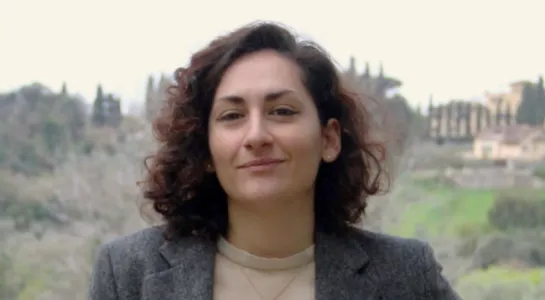FRAILIFE: Child Disability and Family Life
Grant: ERC Starting Grant, €1.4 million
Principal Investigator: Prof. Nicoletta Balbo
Period: 2023-2028
Across the European Union, approximately 4% among individuals under age 16 have a disability, and over 15 million school-age children are known to have special educational needs. Disabilities limit children in their everyday activities and impact families in myriad ways. FRAILIFE aims to comprehensively analyze the effects of a child disability on family members – parents, siblings, and grandparents – in Europe, using high-quality data (registers, surveys, social media), innovative research designs and methods. By focusing on the impact of child disability on family members’ life course trajectories, health outcomes, and social participation, FRAILIFE speaks to both general family processes and the special case of Europe’s frailest families.
The existing literature on families with a disabled child is scattered, built on small convenience samples, and often focused on a specific disease; the findings are inconclusive and non-generalizable. FRAILIFE elevates the evidentiary standard by: i) using a population approach, which compares families with and without a disabled child and provides opportunities to uncover heterogeneous effects; ii) going beyond simple associations between child disability and family outcomes to establish causal pathways, identify underlying mechanisms, and uncover causal effects; iii) investigating both short- and long-term consequences of child disability on families; iv) adopting a comparative perspective to uncover the moderating effects of institutions and culture. Beyond the specific insights about the networked consequences of disability, this project contributes to the field of family demography, as the analysis of extremely frail families has relevance for the general functioning of all families facing adverse events. FRAILIFE will bring families with a disabled child out of their invisibility, offering new and important insights on their functioning, characteristics, and challenges, while informing effective family-centered policy.
This website area is part of a project that has received funding from the European Research Council (ERC) under the European Union’s Horizon Europe research and innovation programme
(Grant agreement No. 101077533)
Research Team
External Team Members
Project Results
Wörn, Jonathan, Nicoletta Balbo, Karsten Hank, and Øystein Kravdal. “The temporal alignment of mental health consultations across family members: A study of Norwegian adolescents, their parents, and siblings.” Social Psychiatry and Psychiatric Epidemiology. (2024). https://doi.org/10.1007/s00127-024-02803-1
Balbo, Nicoletta, and Danilo Bolano. "Child disability as a family issue: a study on mothers’ and fathers’ health in Italy." European Journal of Public Health 34, no. 1 (2024): 79-84. https://doi.org/10.1093/eurpub/ckad168
- EAPS Working group Child & Adolescent Development Webinar, May 5, 2023. Balbo N. Child Disability and Family Life.
- SPS conference on Global Challenges, Napoli, June 15, 2023. Balbo N. Child Disability and Family Life.
- Max Planck Institute for Demographic Research Seminar Series, MPDR, Rostock, Germany, June 28, 2023. Balbo N. Child Disability and Family Life.
- 2023 Research Celebration Day, Bocconi University, Milan, Italy, November 29, 2023. Balbo N. Child Disability and Family Life.
- GENPOP Seminar Series, Bologna, March 7, 2024. Balbo N. Child Disability and Parents' Life.
- Annual Conference of the German Society for Demography (DGD) and the Nordic Demographic Societies, March 20-22 2024, Hamburg (Germany). Bister, L. A new framework to identify individuals with a disability using linked individual-level register data. Invited Presentation.
- Population American Association Conference 2024, April 17-20 2024, Columbus (Ohio). Neri, E. Understanding the relationship between child disability and political attitudes: is religion important?
- Annual Meeting of the Population Association of America (PAA), April 17-20 2024, Columbus (USA). Poster session. Bister, L. Life course outcomes of individuals who grew up with a sibling with a disability.
- Annual Meeting of the Population Association of America (PAA), April 17-20 2024, Columbus (USA). Poster session. Dominici, A. Disability and life expectancy over the XXth century: the role of culture
- Annual Finnish Social Psychology Conference, May 16-17 2024, Helsinki (FI). Neri E. Behind close doors: child disability and family members' social well-being. ye
- Population American Association Conference 2024, April 17-20 2024, Columbus (Ohio). Balbo N. Teenage Mental Health Problems and the Co-Development of Parent and Sibling Mental Health
- European Population Conference 2024, EAPS Masterclass ‘Families and Child Development and Well-being’, June 2024, Edinburgh (UK). Bister, L. A new framework to identify individuals with a disability using linked individual-level register data.
- European Population Conference (EPC), June 12-15 2024, Edinburgh (UK). Poster session. Bister, L. Life course outcomes of individuals who grew up with a sibling with a disability.
- European Population Conference (EPC), June 12-15 2024, Edinburgh (UK). Poster session. Dominici, A. Disability and life expectancy over the XXth century: the role of culture
- European Population Conference 2024, June 12-15 2024, Edinburgh, Scotland, UK. Balbo N. Teenage Mental Health Problems and the Co-Development of Parent and Sibling Mental Health
- Biannual Conference of the European Society of Health and Medical Sociology (ESHMS), July 2-5 2024, Antwerp (Belgium). Bister, L. Life course outcomes of individuals who grew up with a sibling with a disability.
- Annual Conference of the European Consortium for Sociological Research (ECSR), September 12-14 2024, Barcelona (Spain). Bister, L. Life course outcomes of individuals who grew up with a sibling with a disability.
- Alpine Population Conference (Alp-Pop) 2025, 12-15 January 2025, Hotel Planibel La Thuile Aosta Valley, Italy. Dominici, A. The spillovers of child disability on peers’ education.
- Association for the Study of Religion, Economics and Culture (ASREC) Conference 2025, March 7-8, 2025, George Mason University, Arlington, VA (USA). Dominici, A. The age of mass migrations and people with disabilities' lifespan: Sweden (1894-1919).
- RC28 Spring Conference, March 25-27, 2025, Milan (Italy). Dominici, A. The spillovers of child disability on peers’ education.
- RC28 Spring Conference, March 25-27, 2025, Milan (Italy). Guasti, C. Child Disability and Parents’ Trust.
- RC28 Spring Conference, March 25-27, 2025, Milan (Italy). Palmaccio, S. Child disability spillovers on schoolmates' noncognitive outcomes. Poster session.
- RC28 Spring Conference, March 25-27, 2025, Milan (Italy). Neri, E. Behind closed doors: child disability and family members' social well-being.
- RC28 Spring Conference, March 25-27, 2025, Milan (Italy). Balbo, N. The parental care burden of child disability.
- Leuven Economics of Education Research (LEER) 10th conference, Leuven (Belgium). Palmaccio, S. Child disability spillovers on schoolmates' noncognitive outcomes.
- Annual Meeting of the Population Association of America (PAA), April 10-13 2025, Washington DC (USA). Poster session. Balbo, N. The spillovers of child disability on peers’ education.
- DISDEM 1.0 Workshop: Disability and Democracy, Budapest (Hungary). Balbo, N. Child disability and parental employment.
- DISDEM 1.0 Workshop: Disability and Democracy, Budapest (Hungary). Palmaccio, S. Child disability spillovers on schoolmates' noncognitive outcomes.
- Popdays 15h Edition, June 4-6 2025, Cagliari (Italy). Palmaccio, S. Child disability spillovers on schoolmates' noncognitive outcomes.
- Popdays 15h Edition, June 4-6 2025, Cagliari (Italy). Guasti, C. Child Disability and Parents’ Trust.
- Popdays 15h Edition, June 4-6 2025, Cagliari (Italy). Neri, E. Behind closed doors: child disability and family members' social well-being.
- Popdays 15h Edition, June 4-6 2025, Cagliari (Italy). Neri, E. The spillovers of child disability on peers’ education.
- Popdays 15h Edition, June 4-6 2025, Cagliari (Italy). Bister, L. Understanding the Burden of Sibling Disability: Mental Health and Wellbeing of Individuals Growing Up with a Sibling with a Disability from Adolescence to Young Adulthood in Finland.
- Popdays 15h Edition, June 4-6 2025, Cagliari (Italy). Balbo, L. Child Disability and Parental Care Burden.









